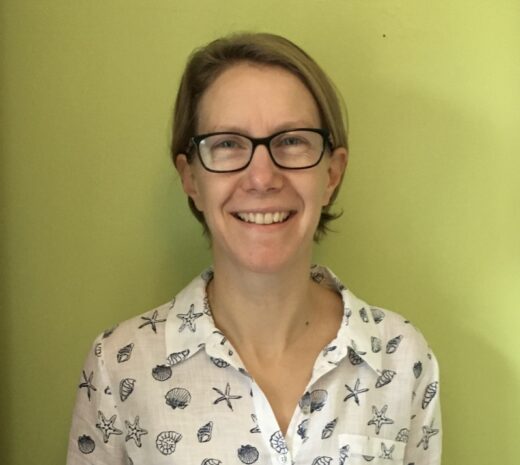By Sarah Finch @sarah_finch19

How can we support the diverse needs of refugees and asylum seekers? Treating them with care and compassion is the best place to start, says Kathryn Ashworth, Director of Leeds-based charity Solace
It is difficult to imagine what it is like to be a refugee. And why would we want to? After facing the likes of war, torture and persecution, these people have been forced to flee their homes, only to enter a system which often treats them with open hostility in the UK.
The question is, why? Refugees are people, just like us. They come from all parts of society, they have families, they have friends. They have dreams and aspirations, but they are victims of circumstance – who had to leave their lives behind.
In spite of their portrayal in the mass media as nameless, faceless masses, we have a duty to understand these people – and come to terms with their stories – as individuals. It is on such a human level that the Director of Solace, Kathryn Ashworth, advocates the treatment of all people fleeing persecution and exile, and is a core principle underpinning the charity’s therapeutic work.
Therapy in its widest sense
Solace was founded in Leeds in 2007, to reduce the distress faced by refugees and asylum seekers. In practice, this means delivering therapy to these individuals in a wide range of different ways.
“Over the years we have built up a lot of expertise about what works, what’s important, and how to do therapy with this particular client group,” Ashworth says.
“All our therapists come from a range of different training backgrounds, which we see as a real benefit as a team. We deliver talking therapy, 1:1 therapy, Shiatsu massage therapy; we also offer a stress management group once a week which is really popular.”
“We try and meet the whole needs as far as we can of the person in front of us. So 1:1 therapy isn’t for everybody, but perhaps coming to a stress management group where people can learn techniques to cope in a very stressful situation they’re living in at the moment is really important.”
Crucially, Solace offers its clients a safe place to be. The charity’s ethos – to be welcoming, hospitable and caring – is put into action from the minute people come through the door.
“We know how anxious they can be,” says Ashworth, “so we try and put things in place right from the moment they contact us.”
Dealing with the system
The uniqueness of Solace as a therapeutic charity for refugees lies in the fact that it works exclusively with people from this client group. The Solace team knows how to navigate the asylum system, a bewildering process which can last for years.
“When people arrive in the country they have to claim asylum,” Ashworth says. “Not everybody does that straight away because they may not know it’s required. A lot of people don’t even know what asylum is. They are just getting away from a dangerous situation and going somewhere they think will be safe.”
Once an individual has claimed asylum they undertake a short interview with the Home Office, before being dispersed around the country. They then wait to be invited to a full interview with the Home Office, which forms the basis for whether or not their claim to asylum in the UK is granted.
Although Ashworth is reticent to criticise this process, it is undeniable that it is designed to make people feel unwelcome. Home Secretary Theresa May stated in 2012 that her aim was to create ‘a really hostile environment’ towards illegal immigration, which – while not explicitly targeting refugees – set the tone for immigration procedures as a whole.
“There is definitely the sense that the long interview is looking for loopholes in a person’s story,” says Ashworth. “People will be asked questions that will trip them up. The Home Office might say ‘Oh, you said in your short interview that it was Wednesday when you arrived, and now you think it’s Thursday.’ That immediately attacks the person’s credibility.”
A long, long process
“We’ve got several examples of people whose credibility is questioned because they can’t remember the details of what happened,” Ashworth adds. “That long interview is directly there to say to people that they are not credible, that they have lied about things. Not that they’ve made a mistake, or forgotten, or it was six years ago…”
While the Home Office makes their decision, these people live in asylum accommodation, and cannot work. This leaves them in a state of uncertainty which can go on for an extremely long time.
“The aim was to make the decision within six months, but as I understand it that very rarely happens,” Ashworth says. “There’s some very, very long cases. There are lots of people who have been stuck in that system for fifteen years or more.”
For anyone, living in a constant state of uncertainty would be difficult to cope with. Add to this the doubts the system places on people’s integrity, and the impression it conveys that they are not wanted, and it is easy to see how seeking asylum is a very stressful and lonely place to be.
Dealing with the practicalities
One of the most complicated aspects of supporting refugees and asylum seekers is helping them cope – not only with the trauma they have faced in the past – but in the situation in which they now find themselves in the UK. Treatment of these needs, as Ashworth notes, has to be undertaken in a holistic way.
“We do a lot of work around the formal therapy,” she says. “So we write supporting letters, we do referrals to other organisations, and we try to make sure the client is linked in with other organisations.”
“Refugees and asylum seekers face all kinds of problems and difficulties, so we can’t meet all those needs. But, we can make sure they are connected to people who can help them with what they are facing.”
“When the practical things around housing and benefits, as well as the therapy side of things, are looked at and taken seriously, they both become more effective.”
A special kind of support
Importantly, as Ashworth points out, Solace is committed to working with people no matter what state they are currently in.
“A lot of therapy organisations – for good reasons – say they can’t work with particular client groups because they’re not ready for therapy, they’re not in a stable enough place to start looking at what’s happened to them,” she says. “But we do that very differently. We always look at what we can do. We try really hard to meet people where they are, no matter what issues they’ve got.”
One of the main challenges with working with this client group is undeniably the uncertainty they face, and the lack of control they have over their own lives.
“People have come through situations we can’t even imagine,” says Ashworth, “with war zones, seeing people killed, and terrible things happening to them. A lot of people have suffered torture, so they have physical injuries as well as symptoms of trauma.”
“We want to help with those things, but the people in this client group have no certainty on which to build their recovery. They are asylum seekers so the rug could be pulled out from under them at any time. They don’t know what’s going to happen to them, or how long they are going to be here.”
“Working therapeutically with all of that going on is quite a particular skill, and it’s one that our team of therapists has developed over time.”
What can we do to help?
Spending even a few hours at Solace, it is easy to see how the charity provides a real ray of light to some of the world’s most vulnerable people.
Ashworth has experienced first hand how this kind of work changes lives, lessening the burden of past trauma, and simply providing a welcoming place to be.
“There’s a lady who used to be a client,” she says. “She said that she was almost dead – she didn’t mean physically, but as a person – she felt that she was no longer herself. Her emotional state was killing her. But she described Solace as her glass of water. It brought her back from all the terrible things that had happened. When you hear things like that it is very inspiring.”
If anyone would like to support the Solace’s work, they are always looking for trained therapists to work with, and much-needed donations to fund the organisation.
On a more general note, if there is one thing we can all easily do it is to treat people with more compassion.
“The key thing is to see the individual, to see the people that are involved in this,” says Ashworth. “It’s very easy to look at asylum seekers and refugees as a mass. But that mass is made up of individual people with lots of different stories, different backgrounds, languages, cultures, ages, abilities – it’s the whole range of people.”
“See the person – anybody can do that.”
Given what these people have been through, and continue to experience, this seems like the least we can do. After all, if the tables were turned, wouldn’t we expect the same?

